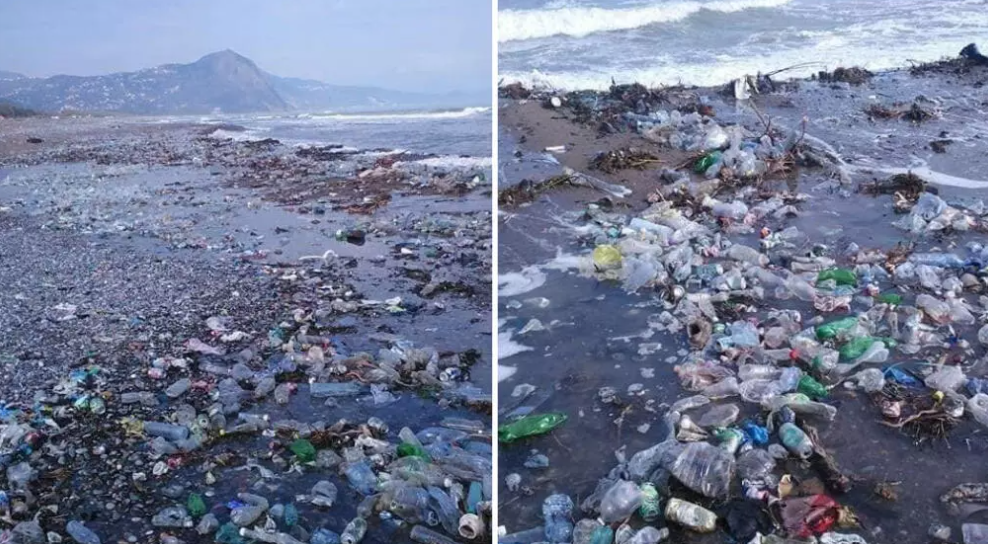At the beginning of February, tons of garbage washed up on the beach in the town of Melbou, in the Béjaïa province of Algeria. Photos shared on social media drew attention to this pollution, which covered the coast like a "plastic wave," and urged authorities to take action. In fact, this scene isn't new; it's the same scenario every winter. Plastic bottles, glass bottles, cans, and other waste are dumped into the environment by local residents and eventually end up in the sea.
On February 2, a video shot between Souk El Ténine and Melbou was published on local news sites. Immediately afterward, Professor Khaled Foudil of Constantine University, president of the environmental association OXY-Jeunes Darguina, shared striking photos on Facebook showing the "environmental disaster" on the beach. Speaking to local media, Foudil stated that waste management in Béjaïa's cities was inadequate and called for urgent solutions.
According to Foudil, the source of the garbage reaching the beach is mostly from the Béjaïa province. There are unregulated garbage dumps along the Oued Soummam and Oued Agrioun rivers. During rainy weather, this waste mixes with the rivers and is carried to the sea. On stormy days, the sea washes the garbage back onto the Melbou coast. “This is nature’s revenge,” says Foudil.
While local authorities are required to collect waste regularly, most municipalities lack the financial resources. Modern landfills and recycling facilities are prohibitively expensive. As a result, people dump their garbage in uncontrolled areas. This not only pollutes the sea but also poisons the soil and groundwater. When the dumps are full, municipal workers burn them, but the toxic smoke from burning plastic, in particular, causes respiratory illnesses in the region.
In summer, the scene is somewhat different. Municipalities clean the beaches for the tourist season, and due to lack of rainfall, the rivers dry up and cannot carry the garbage to the sea. However, the problem worsens in winter. Foudil’s association organizes awareness campaigns and conducts beach cleanups. However, the collected garbage is taken back to the same uncontrolled areas, perpetuating the vicious cycle. Foudil and environmental activists are demanding that all cities in Béjaïa collaborate to establish modern landfills and improve recycling and separation systems. Currently, only an informal recycling network exists; some individuals collect plastic from landfills and sell it to recycling companies. However, they emphasize that this activity must be made legal and sustainable.
Unfortunately, the problem has not been resolved since 2015; Melbou beach is still overwhelmed by garbage.


